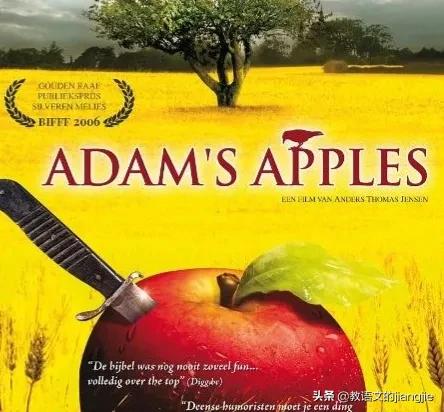The first apple is about our wisdom.
The Bible says that Adam and Eve were tempted in the garden by Satan in the form of a serpent to steal the apple from the tree of wisdom, so she understood the shame and had original sin. The two fruits seemed to be injected with a powerful agent into the two hearts of the mixture of obscurity. The spiritual world of the two suddenly clarified, clarified, and their eyes brightened. They began to distinguish between me and developed the concept of "self", and they were extremely frustrated to find that it was a shameful thing to be naked. So they used fig leaves to weave skirts for themselves to disguise their lower bodies.
And when Adam and Eve stole the forbidden fruit, the world turned upside down because it was the first time God had broken His will after creating man.
The apple represents wisdom and original sin.
This apple tells us: God can't mess with it.

The second apple is about Newton.
In the late summer of 1666, ursthorpe, Lincolnshire, England, he sat under a tree in his mother's garden and read a book. As he turned the page, something shook in the branches above his head. One of the most famous apples in history fell and hit Newton on the head. In 1666, newton returned to his hometown due to the suspension of Cambridge. In the summer of 1666, when Newton was sitting under an apple tree, an apple fell, which inspired him to think that the apple must have been pulled down by the earth.
Thus, a great law was born.
This story tells us that whoever apples smash is also picking people.
The third apple is about "Troy."
Legend has it that on the day of the wedding of the famous brave Greek warrior Pereus and Thetis, the daughter of the sea king, a wedding feast was held, and all the gods of Mount Olympus came to the wedding feast, but the goddess of strife was not invited. When the goddess of strife learned of this, she became more and more angry, and she became angry and wanted to take revenge on the gods and men who attended the wedding feast, so that everyone would disperse unhappily. When the guests were singing happily, a golden apple suddenly fell from the sky, and the golden apple was engraved with "For the most beautiful goddess". So an apple sparked a bloody battle.
This apple tells us: women can't be bothered, and beautiful women can't be bothered.
The fourth apple is about Apple
An Apple starring Fan Bingbing shocked the film world. Omit 10,000 words here.
This apple tells us: Women, can't afford to hurt.
The fifth Apple is about the iPad.
A clear apple, bitten alive by God, turns out to be synonymous with innovation and individuality, not to mention how high the value of God's mouth is, just the cracked bite, giving people endless reverie.
Apple's earliest logo was a newton sitting on the apple counting and reading a book, only to be changed to a bitten apple, began to make a black and white silhouette of an apple, but always felt missing something, "I want to simplify the shape of the apple, and was bitten on one side to prevent the apple from looking like a tomato,"
The collection of brands that are now popular around the world is remembered for this powerful company.
This apple tells us that even if you are an apple that has been bitten by God, it still has a fragrance.
The sixth apple is about the gaokao
The college entrance examination essay for one year is as follows:
A philosopher held up an apple and said to his student, "I just picked this apple from an orchard, do you smell it?" "One student saw the apple red and rushed to say: Smell it."
The philosopher went to the students again and asked them to smell, some said they smelled, some did not smell and said they smelled, only three students were silent. The philosopher said, "What's wrong with you?" One of the students sniffed again and said, "I don't smell anything, and another student came up and touched it and said, What is this apple?"
Another student said, "Teacher, I have a cold today." The philosopher showed the apple to the students, and it turned out to be a fake apple made of wax.
This philosopher is Socrates, and the one who has the courage to say anything and not smell it is the famous Plato.
This apple tells us that it is not easy to hold fast to the truth.
I remember a word; I love my teacher, and I love the truth even more.
This sentence was said by Aristotle to his teacher Plato.
When authority and science constitute contradictions, the brilliance of truth shines even brighter. In this era of superstitious authority, in this era of blind obedience, in this era of subjective assumptions, in this era of eloquence over facts, how good is the composition of this college entrance examination.